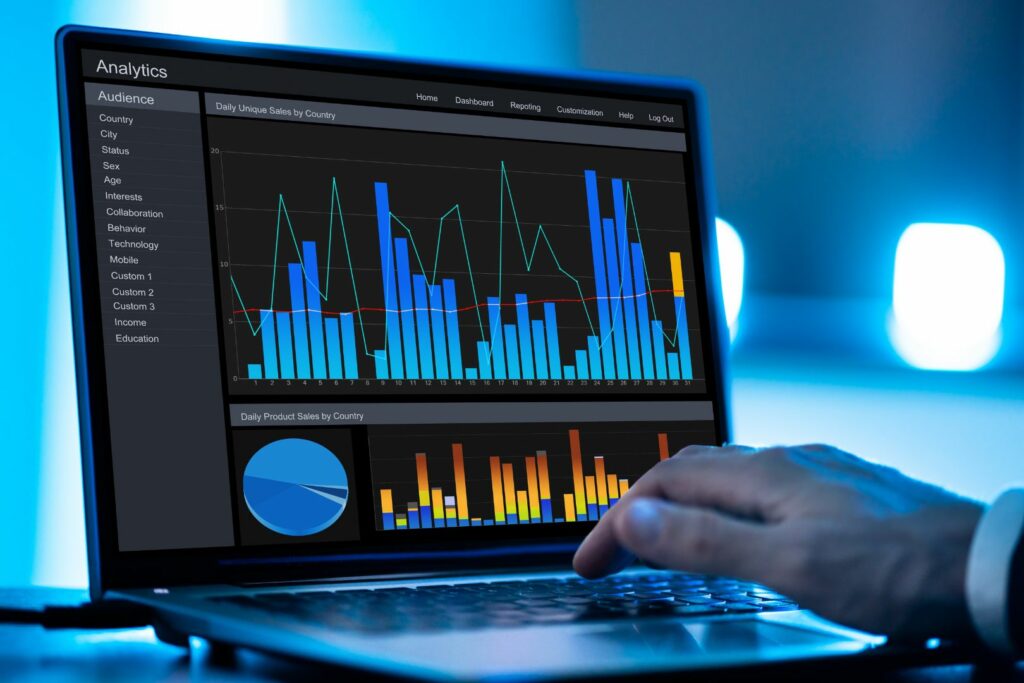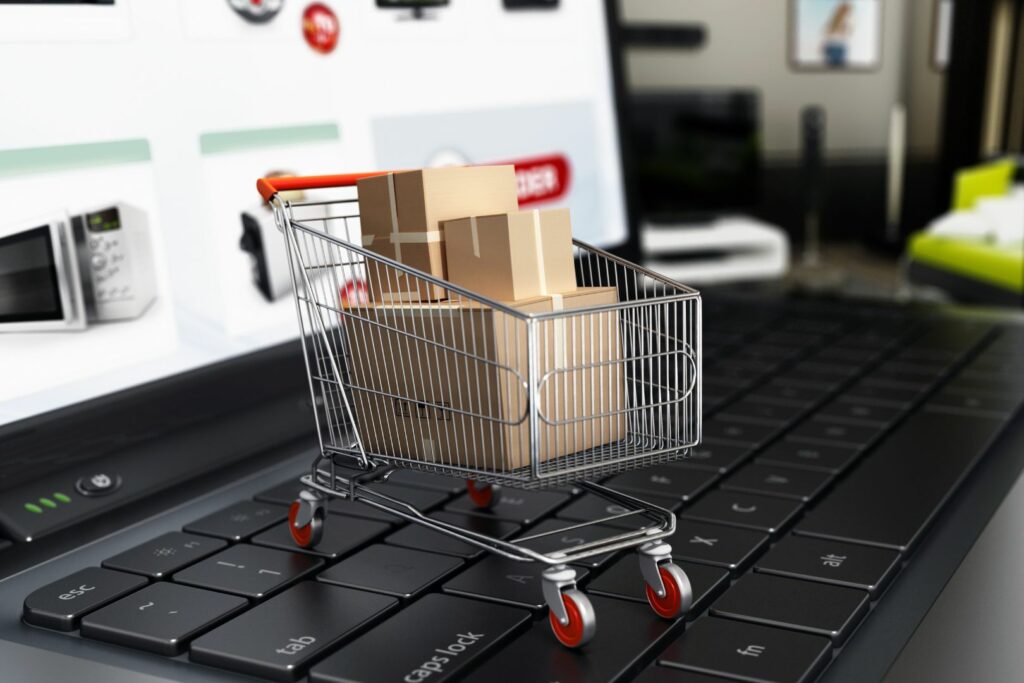In the ever-evolving landscape of business-to-business (B2B) commerce, buyers are faced with a multitude of choices when it comes to selecting suppliers. While traditional procurement methods still have their place, B2B ecommerce has emerged as a game-changer, offering buyers a wide array of options and benefits. In this blog, we will delve into the reasons why buyers are increasingly choosing B2B ecommerce suppliers and how this choice is reshaping the B2B procurement landscape.
Table of Contents
Purchasing was once a labor-intensive, process-driven exercise with purchase orders and invoices being just a fraction of the organizational overheads involved. But things have changed…
Business to business (B2B) buyers know and understand the world of online shopping. Business to consumer (B2C) ecommerce has set the bar extremely high in terms of ease, accessibility and buyer experience.
B2B buyers want and expect a similar quality experience for their professional purchases. They are also looking for more control over the process – choosing when and if they need to speak to sales, technical and customer service staff.
Reasons buyers choose suppliers who offer B2B ecommerce
The majority of today’s B2B buyers expect way more than half of their business purchases to be made online. Online business purchasing is likely to be even higher in smaller companies that have more flexible purchasing rules.
It starts with a search
Almost two thirds of B2B buyers are likely to start their purchasing process with an online search. If they don’t find your brand at this stage, they are unlikely to buy from you. Once their product choice has been made, they are likely to buy from a distributor’s or manufacturer’s website. At this stage a well optimized B2B ecommerce site with great product choice, transparent pricing, useful content and ease of use are going to be key considerations.
Mobile buyers
More than half of B2B buyers use a smartphone for their research, so successful B2B ecommerce sites need to be optimized for mobile users. As the ‘baby boom’ generation retires, more ‘millennials’ are becoming B2B buyers. Their employers are increasingly favoring work from any location using mobile devices. Wherever they are working, they will expect a fast and professional buying experience.
Convenience and Accessibility
One of the primary reasons why buyers opt for B2B ecommerce suppliers is the convenience and accessibility they offer. With a few clicks, buyers can access a vast catalog of products and services, compare prices, and place orders at any time, day or night. This convenience eliminates the need for extensive phone calls, negotiations, and manual paperwork, making the purchasing process significantly more efficient.
Diverse Product Catalogs
B2B ecommerce platforms often boast extensive and diverse product catalogs. Buyers can explore a wide range of options from multiple suppliers without the constraints of geographic limitations. This diversity allows buyers to find the exact products or services that meet their specific requirements, leading to better outcomes for their businesses.
Competitive Pricing

Competition among B2B ecommerce suppliers is fierce, which can work to the advantage of buyers. Suppliers often strive to offer competitive pricing to attract and retain customers. Buyers can benefit from this competition by securing cost-effective deals that align with their budgetary constraints.
Transparency and Information
B2B ecommerce platforms provide transparency through detailed product descriptions, pricing information, and user reviews. Buyers have access to all the essential details they need to make informed decisions. This transparency reduces the risk of misunderstandings and ensures that buyers receive the products or services they expect.
Efficient Order Management
Order management through B2B ecommerce platforms is streamlined and efficient. Buyers can track their orders in real-time, receive notifications on order status, and access historical data for reference. This level of order management efficiency simplifies the procurement process and minimizes the risk of errors.
Personalization and Recommendations
B2B ecommerce platforms leverage data analytics and artificial intelligence to provide personalized product recommendations. Buyers receive suggestions based on their past purchases, preferences, and browsing behavior. This personalization enhances the buying experience and can lead to cross-selling and upselling opportunities.
Streamlined Procurement Workflows
Buyers are drawn to B2B ecommerce suppliers because of the streamlined procurement workflows these platforms offer. Automated processes, including electronic invoicing, payment options, and order tracking, reduce administrative burdens and free up valuable time for buyers to focus on strategic tasks.
Customer Support and Service
Leading B2B ecommerce suppliers prioritize customer support and service. Buyers can access assistance through various channels, including chat, email, and phone support. Responsive customer service teams ensure that any issues or inquiries are addressed promptly, fostering positive relationships between buyers and suppliers.
Data-Driven Insights

B2B ecommerce platforms generate a wealth of data that can be leveraged by buyers to gain insights into their purchasing patterns, supplier performance, and market trends. These data-driven insights empower buyers to make informed decisions, negotiate better terms, and optimize their procurement strategies.
Scalability and Flexibility
B2B ecommerce suppliers often offer scalable solutions that can grow with a buyer’s business. This scalability allows buyers to adapt to changing market conditions, expand their operations, and meet evolving customer demands.
Environmental Considerations
Sustainability and environmental considerations are increasingly important factors in procurement decisions. Many B2B ecommerce suppliers are committed to sustainable practices, offering eco-friendly products and providing transparency regarding their environmental initiatives. This aligns with the sustainability goals of many modern businesses.
Channel switching
While the buying process might begin online, buyers expect easy access to the customer service team or technical support before completing their transaction. If you deliver an exceptional experience your buyers are much more likely to return. They will, however, expect a personalized experience when they come back, based on their previous buying history.
A final thought – Global opportunities

The spectacular growth of B2B ecommerce marketplaces like Alibaba means that wholesalers, distributors, and manufacturers have access to potential worldwide sales.
Using the latest Cloud-based ecommerce technology like Cloudfy you can create fast, innovative and cost-effective ecommerce sites. You can deliver intuitive user experiences and personalization in multiple languages, time zones and currencies.
Seamless integration with ordering and enterprise resource planning systems you can create efficient automated workflows that will allow you to cost-effectively participate in global markets.
Get in touch to find out how to become an ecommerce supplier of choice.
Frequently Asked Questions
B2B buyers are drawn to ecommerce suppliers for their convenience, accessibility, and streamlined processes. These suppliers offer diverse product catalogs, competitive pricing, and data-driven insights that enhance the procurement experience.
Ecommerce platforms provide efficient order management, personalized recommendations, and transparent information, reducing administrative burdens. This allows buyers to focus on strategic tasks while ensuring a smooth procurement process.
B2B ecommerce platforms leverage personalization through data analytics and AI, offering buyers tailored product recommendations and experiences. Personalization enhances the buying journey and can lead to cross-selling and upselling opportunities.
Many B2B ecommerce suppliers prioritize sustainability by offering eco-friendly products and transparent environmental initiatives. This aligns with the sustainability goals of modern businesses, making them an attractive choice for environmentally conscious buyers.
B2B ecommerce suppliers like Cloudfy offer the latest Cloud-based technology for fast and cost-effective ecommerce sites. They facilitate intuitive user experiences, personalization, and seamless integration with ordering and enterprise resource planning systems, allowing businesses to participate in global markets efficiently.






